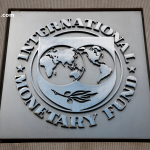A sudden outbreak of measles has struck a local community in Nasarawa State, Nigeria, triggering concerns among health authorities and residents as the number of affected individuals continues to climb. The outbreak, confirmed by local health officials earlier this week, has so far resulted in several hospitalizations and raised alarms about the vulnerability of rural and underserved populations to vaccine-preventable diseases.
According to health sources in the state’s primary healthcare department, the outbreak was first noticed in the Angwan Jaba area of Karu Local Government Area, where multiple cases of high fever, rash, and respiratory symptoms were reported among children. The situation escalated quickly, prompting swift intervention by local health authorities and humanitarian organizations.
“The first reported case came from a family whose child developed fever and rash after attending a local gathering,” said Dr. Hajara Ibrahim, the state’s Director of Public Health. “Within a matter of days, we started seeing more children with similar symptoms, all pointing to measles.”
A Worrying Trend
As of April 22, more than 45 cases have been recorded in the community, with many of the patients being children under the age of five. Although no fatalities have been officially confirmed, several severe cases have been referred to state hospitals in Lafia and Keffi for advanced care.
Measles, a highly contagious viral disease, spreads through respiratory droplets and can result in severe complications such as pneumonia, encephalitis, and death, particularly in children who are malnourished or have weakened immune systems. Despite being preventable through routine immunization, Nigeria continues to witness periodic outbreaks, especially in areas with low vaccination coverage.
Community leaders have expressed concern over the spread of the disease and called on the government to intensify vaccination campaigns and public awareness.
“We are scared,” said Mallam Yusuf Danjuma, a local resident and father of five. “Some of our children have been affected, and we don’t have enough healthcare support here. We need more vaccines, more doctors, and more information on how to keep our families safe.”
Gaps in Immunization
According to local health workers, one of the root causes of the outbreak is low immunization coverage in the affected area. Many families reportedly missed routine vaccinations due to misinformation, distance to health centers, or supply challenges.
“Some of the parents we spoke to had not taken their children for routine immunizations, either due to religious beliefs or fear of side effects,” said Hauwa Salisu, a community health officer. “This makes the entire community vulnerable, especially during outbreaks like this.”
To combat the spread, Nasarawa State Ministry of Health, in collaboration with the World Health Organization (WHO) and UNICEF, has launched an emergency vaccination campaign targeting children between the ages of 6 months and 5 years. Mobile clinics and outreach teams have been deployed to high-risk areas to administer measles vaccines and provide health education to caregivers.
Government Response
Governor Abdullahi Sule has been briefed on the situation and has directed relevant agencies to intensify surveillance, improve case management, and support community sensitization efforts. In a statement released by the Commissioner for Health, the state government reaffirmed its commitment to eradicating vaccine-preventable diseases and called on parents to cooperate with health workers.
“We are working round the clock to contain this outbreak and prevent further spread,” the Commissioner stated. “Parents should ensure their children are vaccinated and report any symptoms immediately. Prevention is the most powerful tool we have against measles.”
Community Support and Challenges
While the emergency response has been largely welcomed, some challenges remain. Poor road access, limited healthcare infrastructure, and resistance from a few community members have slowed down the pace of intervention. Health workers are urging community leaders, religious institutions, and schools to support awareness campaigns and help counter vaccine hesitancy.
“We are using town criers, local radio stations, and mosques to reach people with the right information,” said Maryam Gana, a volunteer nurse with a local NGO. “But we need sustained support to make sure everyone is reached.”
As the state grapples with the outbreak, the situation in Nasarawa serves as a stark reminder of the importance of routine immunization and the need to strengthen Nigeria’s public health infrastructure, especially in rural communities.
The coming days will be critical in determining whether the outbreak is brought under control. For now, the community waits anxiously, hoping that timely intervention and greater public awareness will stop the spread of the disease and protect its youngest and most vulnerable members.











